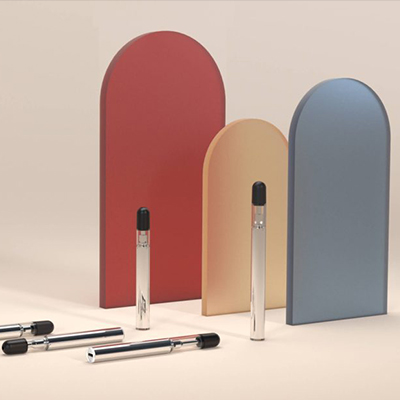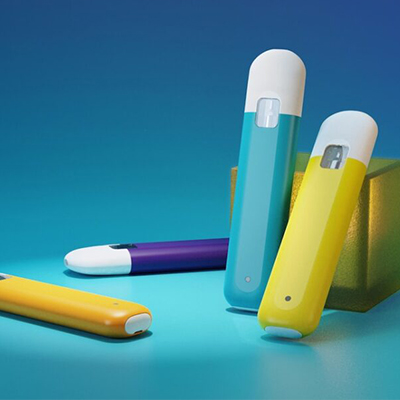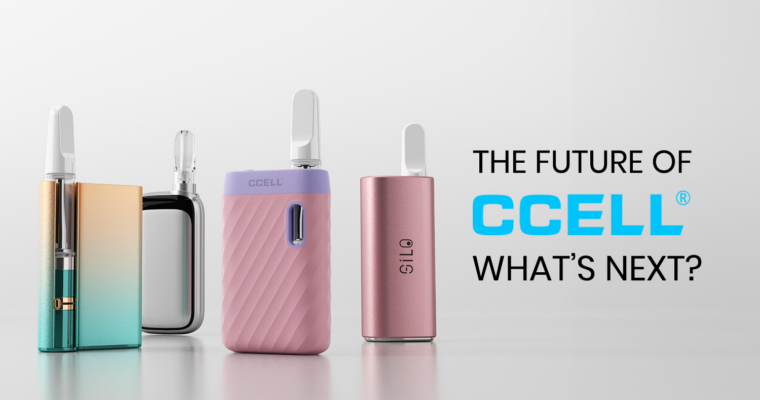Hexahydrocannabiphorol (HHC-P) is a new cannabinoid that was first discovered in 2019. Although the name might seem like a bit of a tongue twister, HHC-P definitely belongs on your radar if you’re a serious cannabis aficionado who’s always on the hunt for new and more elevating experiences. You’ve probably found it difficult to keep track of the many new cannabinoid products that have hit the market over the last couple of years, but it’s definitely worth the effort to make a little room in your brain for this one because the experiences you can have with an HHC-P vape cart and a good 510 thread battery will be absolutely unforgettable.
HHC-P does occur naturally in cannabis, but it doesn’t occur in high enough concentrations to make direct extraction practical for hemp processors. Instead of extracting HHC-P directly, hemp processors obtain it by synthesizing it from another cannabinoid: CBD.
In this article, we’ll go into detail explaining what HHC-P is and how it’s made. We’re also going to answer the questions about HHC-P that you’re likely to have. The most important thing to understand before you begin, though, is that HHC-P is incredibly potent. It binds to the CB-1 receptors in the brain much more efficiently than Delta-9 THC. For that reason, experts believe that HHC-P may be as much as 10 times more potent than Delta-9. We’re certain to have grabbed your attention with that one, so let’s dive in!
How Is HHC-P Made?
Like many of the other new cannabinoids on the market today such as Delta-8 THC and THC-O, HHC-P is synthesized in a laboratory setting using a process called isomerization. Although HHC-P begins its life as an extract of industrial hemp, it’s not practical to isolate HHC-P directly from hemp and extract it in usable quantities. Therefore, a bit of laboratory assistance is required. It’s possible to convert one cannabinoid into another because most cannabinoids are isomers of one another. That means the molecules are comprised of the same atoms but have slightly different structures.
In comparison to Delta-8, though, the process of obtaining HHC-P is considerably more complex. It involves the use of flammable and explosive compounds, so it’s not something to take lightly and not something that you should ever consider attempting at home.
Here’s a short explanation of how HHC-P is made.
- HHC-P and all other new cannabinoids come from high-CBD industrial hemp. The hemp is grown, and its flowers are harvested and sent to a hemp processing center.
- The hemp processing center extracts the essential oils from the hemp flowers by grinding them and putting them through a carbon dioxide-based extraction process. The resulting extract has the same cannabinoid and terpene profile as the original plant.
- The full-spectrum extract is refined to produce pure CBD. The refinement process involves filtering and winterizing the extract to remove unwanted plant solids, distilling it to remove unwanted cannabinoids and combining it with a solvent to produce pure CBD crystals.
- The CBD is converted into THC-P through the use of solvents and acidity regulators that rearrange the molecule’s structure. THC-P is similar to Delta-9 except that it has a longer side chain of carbon atoms.
- The THC-P is converted into HHC-P via hydrogenation. In this process, the THC-P is combined with hydrogen and a catalyst that forces the hydrogen atoms to jump to the THC-P molecules.
Once again, it’s important to emphasize that hydrogen is extremely flammable when it’s mixed with air. You should never attempt to produce HHC-P on your own and should only buy HHC-P products made by a reliable laboratory in a controlled setting.
What Makes HHC-P Different?
When you begin to research all of the new cannabinoids that are on the market these days, it’s easy to become confused and frustrated because you end up feeling as though you’re just looking at random assortments of letters. Here’s a brief overview to help you understand what the letters mean. We’ll be using the well-known cannabinoid Delta-9 THC as the basis for our comparison.
- The “-P” at the end – as in “HHC-P and “THC-P” – means that the molecule has a longer side chain of carbon atoms – seven instead of the usual five. The longer carbon side chain gives the molecule a greater affinity to the brain’s CB-1 receptors, making the cannabinoid more potent.
- The “H” at the beginning – as in “HHC” rather than “THC” – indicates that the molecule is hydrogenated. Just as with certain forms of cooking oil such as shortening, hydrogenation increases the stability of a molecule by making it resistant to oxidation and other forms of degradation. This can improve the molecule’s potency in long-term storage and can potentially help to increase its bioavailability.
With this information in mind, you should have a better idea of how THC vs. HHC vs. HHC-P compare. HHC-P is molecularly similar to Delta-9 THC, but it’s hydrogenated and has a longer side carbon chain. Those differences serve to make HHC-P potentially more stable than Delta-9 and significantly more potent as well.
What Are the Benefits of HHC-P?
Compared to Delta-9 THC, HHC-P has two very important benefits. We’ve already mentioned one of those benefits above, but we’ll discuss it in greater detail now.
- HHC-P is significantly more potent than Delta-9. It’s thought that HHC-P binds to the brain’s CB-1 receptors as much as 31 times more efficiently than Delta-9, and anecdotal evidence suggests that HHC-P could be up to 10 times as potent as Delta-9 overall. In other words, a very small amount of HHC-P goes a very long way.
- HHC-P is a derivative of industrial hemp, making it federally legal. For that reason, it’s available in many states that lack legal cannabis programs.
What Are the Side Effects of HHC-P?
Because HHC-P is extremely potent, it’s important to consume it in very small quantities at first – even if you’re an experienced THC user. Remember – if it’s 10 times as potent, you should consume a tenth of your usual quantity in order to achieve the same effect. Some people have reported unwanted side effects when consuming HHC-P in large amounts. The potential side effects include overwhelming mental and physical sensations lasting up to two hours, anxiety, agitation, headache and dry mouth. The side effects are comparable to the effects that you might experience after using too much Delta-9 THC – but once again, HHC-P is significantly stronger than Delta-9.
HHC-P FAQs
Although you should have a much better idea of what HHC-P is at this point, you may be left with a few unanswered questions. You’ll find the answers in our HHC-P FAQ.
What Do HHC, HHC-P and HHC-O Mean?
The HHC cannabinoid comes in three forms.
- HHC is the hydrogenated form of THC.
- HHC-P has two extra atoms in its carbon side chain.
- HHC-O is the acetate form of HHC. It is a prodrug, meaning that it doesn’t become active until the body metabolizes it.
HHC and HHC-P vs. THC: What’s the Difference?
Compared to Delta-9 THC, HHC-P is both more stable and more potent. Here’s how HHC vs. HHC-P vs. THC compare.
- HHC is the hydrogenated form of Delta-9 THC.
- HHC-P is hydrogenated and has two extra atoms in its carbon side chain.
How Strong Is HHC-P?
It is estimated that HHC-P binds to the brain’s CB-1 receptors about 31 times as efficiently as Delta-9 THC and that HHC-P is up to 10 times as potent as Delta-9 overall. HHC-P has not been extensively studied, however, and your personal experience may vary.
Will HHC-P Get You High?
HHC-P is a strongly psychoactive cannabinoid and will definitely get you high.
Is HHC-P Legal?
Being a derivative of industrial hemp, HHC-P is federally legal and is not a controlled substance at the federal level. However, it is not legal in states that have passed laws banning it.
Is HHC-P Detectable in a Drug Test?
HHC-P is detectable in a drug test because the metabolites left in the body after you have consumed HHC-P are the same as those present after consuming THC. You should not use HHC-P if you are subject to drug testing.
Final Thoughts on HHC-P
Reading this article, you’ve learned what HHC-P is, and you’ve also learned that there are plenty of reasons to be excited about it. Compared to Delta-9 THC, HHC-P is significantly more potent and more likely to retain its potency in storage. Along with those benefits, it’s also available in many places that provide no legal way for consumers to buy traditional cannabis.
The stability of HHC-P is also great for your bottom line. Because you only need to use a little HHC-P to have a great experience, a small amount will probably last a long time. You’ll save money, and you can be certain that HHC-P will retain its potency in long-term storage.
HHC-P comes in many forms, but the most popular way to consume it is by vaping it – and you’re only going to have a great experience with HHC-P oils and cartridges if you have the right equipment. Shop our selection of vaporizers, 510 batteries and vape cartridges now.






